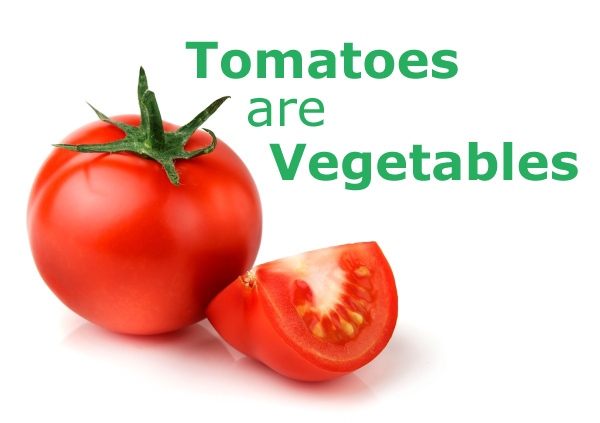Are tomatoes vegetables?
Tomatoes are unlikely be included in your next fruit salad because they’re not sweet, but scientifically are still classified as a fruit for one reason: they contain seeds.
Fruits in fact are the very means by which fruit-bearing plants disseminate their seeds. Plants have evolved to produce tasty fruit, increasing the odds of being eaten by animals or humans, thus dispersing the seeds and propagating new plants.
Tomatoes are typically regarded as vegetables, especially in culinary use, but this is just a function of their savory, rather than sweet, taste. In 1981, a Reagan administration official infamously tried to count ketchup as one of the two recommended servings of vegetables in school lunches (the proposal was ridiculed and quickly dismissed).
Those who believe that tomatoes should still be classified as vegetables might point to an 1893 Supreme Court decision. In the late 19th Century, Congress had imposed a ten percent tax on vegetable imports. One importer protested that tomatoes should not be taxed because they were in fact, a fruit. The Supreme Court unanimously ruled against him, but admitted that while the tomato was treated like a vegetable (served with the main course rather than as a dessert), scientifically speaking it was still a fruit. And of course, the Court had a vested interest in retaining the taxes the government was charging for tomato imports.
Bonus Fact #1: Other fruits masquerading as vegetables include bell peppers, cucumbers, pumpkins and zucchini.
Bonus Fact #2: New Jersey rejected all this fruit nonsense and declared the tomato their state vegetable in 2005.




